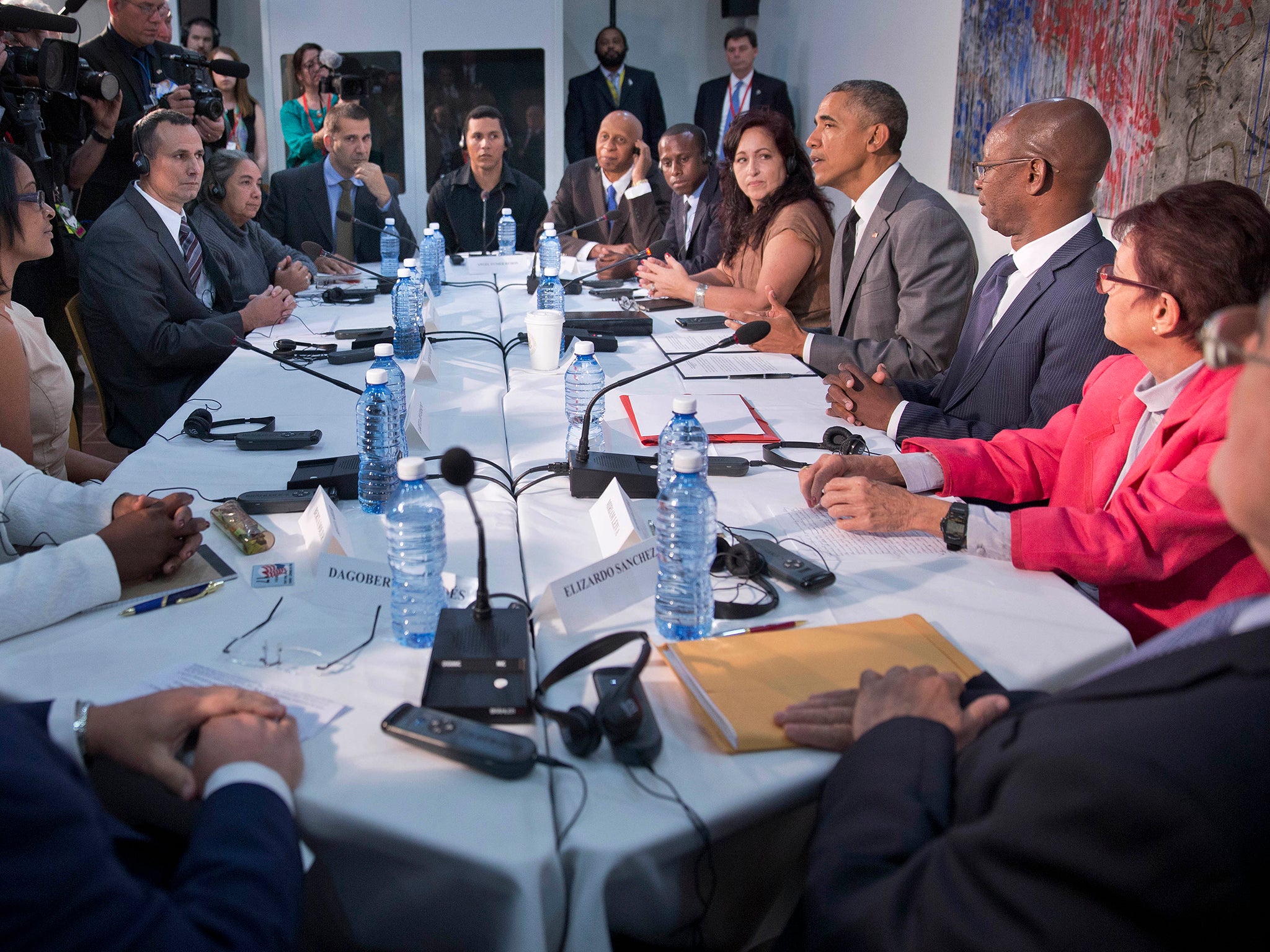Barack Obama calls on Cuba to embrace democracy and roll back political repression
Mr Obama said his coming to Cuba was a chance to 'bury the last remnants of the Cold War in the Americas'

Your support helps us to tell the story
From reproductive rights to climate change to Big Tech, The Independent is on the ground when the story is developing. Whether it's investigating the financials of Elon Musk's pro-Trump PAC or producing our latest documentary, 'The A Word', which shines a light on the American women fighting for reproductive rights, we know how important it is to parse out the facts from the messaging.
At such a critical moment in US history, we need reporters on the ground. Your donation allows us to keep sending journalists to speak to both sides of the story.
The Independent is trusted by Americans across the entire political spectrum. And unlike many other quality news outlets, we choose not to lock Americans out of our reporting and analysis with paywalls. We believe quality journalism should be available to everyone, paid for by those who can afford it.
Your support makes all the difference.With Raul Castro looking on from a balcony seat in the opulent Grand Theatre in downtown Havana, President Barack Obama has admonished the Cuban regime to embrace democracy and roll back political repression so its people can “speak their mind” and criticise their leaders “without fear”.
The appeal came in the last hours of Mr Obama’s visit to Cuba that was meant first to highlight the progress made towards ending more than five decades of fierce enmity between the two countries but which nonetheless could never disguise the profound differences that still separate them, most notably Cuba’s one-party system and its harsh intolerance of political dissent.
It is a raw nerve for the regime that was jangled on 21 March when Mr Castro was asked about political prisoners at a press conference with Mr Obama broadcast across the nation. Shocked Cubans watched as Mr Castro attempted ignorance. “What political prisoners?” he asked, before saying that if he was made aware of any they would be released before the day’s end.
There was never any alternative for Mr Obama but to address the issue head-on in his speech, the marquee moment of his visit. He said his coming to Cuba was a chance to “bury the last remnants of the Cold War in the Americas”. He drew cheers from the audience when he reiterated his call on the US Congress to rescind the US trade embargo, calling it “an outdated burden on the Cuban people”.
However, he said that Cuba’s future would not be determined by the US but by the Cuban people, lauding their “talent, pride and hard work”. He went on: “Even if we lifted the embargo tomorrow, Cubans would not realise their potential without continued change here, in Cuba.”
He then issued his challenge on political freedoms. “I believe that citizens should be free to speak their mind without fear, to organise and to criticise their governments and to protest peacefully and the rule of the law should not include arbitrary detention for people who exercise those rights,” Mr Obama argued. The President later met with a group of Cuban dissenters at the US embassy in Havana.
Ben Rhodes, the Deputy National Security Advisor, told reporters that a list of 53 political prisoners had been submitted to Cuba shortly before the December 2014 unveiling of the rapprochement process and said all those on it had been released at that time. But disagreement persists over the real status of some of those dissidents still behind bars. “It’s their belief that they are not political prisoners,” he said.
Before his meeting with the dissidents, Mr Obama praised their “extraordinary courage” in showing their opposition to the Castro regime in spite the risks to their freedom. “Much of this is a matter of us being able to hear directly from the Cuban people and making sure that they have a voice and making sure that their concerns and their ideas are helping to shape US policy,” he said of the session. Mr Obama has been accused by his critics at home of legitimising the Cuban regime without demanding reforms first.
At moments eloquent, Mr Obama held up his own life story – a mixed-race child born to a single mother who became the US president - as an illustration of how open debate and democratic struggle eventually forges a better society. And he cited the 2016 presidential race also.
“You had two Cuban-Americans in the Republican party running against the legacy of a black man who was president while arguing that they’re the best person to beat the Democratic nominee who will either be a woman or a Democratic socialist,” he said. “Who would have believed that back in 1959?”
Join our commenting forum
Join thought-provoking conversations, follow other Independent readers and see their replies
Comments